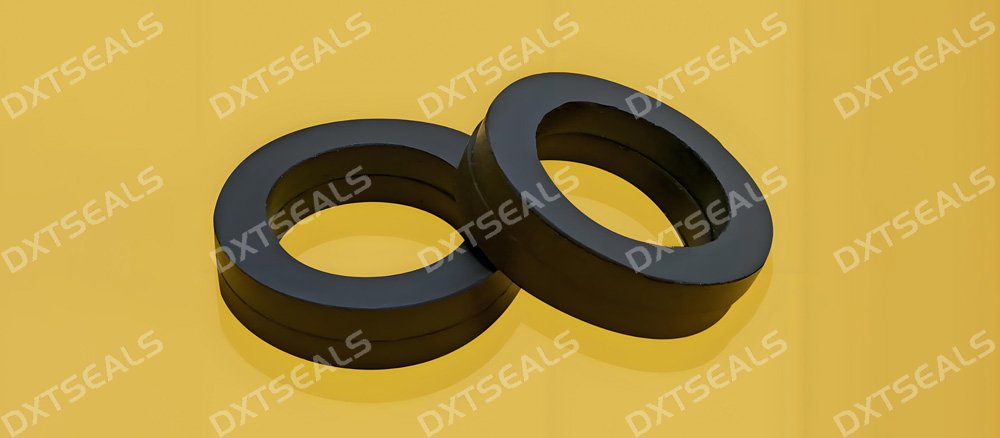
In the food and beverage industry, maintaining the highest standards of safety, hygiene, and quality is non-negotiable. Whether it’s processing, packaging, or handling food products, every component that comes into contact with food must meet strict regulatory standards. Rubber seals play an essential role in ensuring these standards are met. Specifically designed to provide reliable sealing while maintaining hygiene and preventing contamination, food-grade rubber seals are crucial for various applications within the food industry.
In this article, we will explore the top rubber seal applications in food-grade environments, highlighting their benefits, types, and essential features that ensure compliance with safety regulations and contribute to operational efficiency.
1. Sealing in Food Processing Equipment
Food processing equipment, such as mixers, blenders, and grinders, often operates under harsh conditions, with high pressures and temperatures. Rubber seals are used to ensure that these machines maintain airtight, leak-proof seals, preventing contamination and preserving product integrity. Food-grade rubber seals are made from materials that can withstand both the mechanical stresses and the sanitary demands of food production.
- Benefits:
- Prevents contamination of food products by sealing gaps.
- Withstands high temperatures and pressures.
- Ensures compliance with hygiene and safety standards (such as FDA approval).
Common Materials Used:
- EPDM (Ethylene Propylene Diene Monomer): Highly resistant to heat and water, ideal for processing environments involving steam.
- Nitrile Rubber (NBR): Resistant to oils and fats, commonly used in meat and dairy processing.
2. Food Packaging Systems
The food packaging process involves filling, sealing, and packaging food products into containers. Rubber seals are critical components in packaging machinery to ensure that packages are properly sealed, preventing leakage and contamination. These seals are also crucial in preventing air from entering food packages, preserving product freshness and extending shelf life.
- Benefits:
- Prevents air and moisture from contaminating packaged goods.
- Maintains food quality by ensuring airtight seals.
- Supports compliance with hygiene standards in food packaging.
Common Applications:
- Can Seals: Used in canning industries for sealing metal containers.
- Bottle Caps and Closures: Prevents leakage in bottled food and beverage products.
3. Sealing in Food Transport Systems
From the food manufacturing plant to retail or consumer delivery, food products often pass through multiple stages of transportation. Rubber seals are used in transport systems like refrigerated trucks, storage containers, and shipping vessels to ensure products stay secure and hygienic throughout the journey. The ability of rubber seals to provide tight, reliable seals while preventing contaminants from entering the transport environment is crucial in food logistics.
- Benefits:
- Maintains the freshness and integrity of food products.
- Protects food products from external contaminants during transit.
- Ensures safe and sanitary food delivery conditions.
Key Applications:
- Refrigerated Transport: Sealing gaskets for doors and compartments in refrigerated trucks or containers.
- Food Storage: Seals in storage tanks and bins for long-term storage.
4. Sanitary Seals for Food Machinery
Sanitary seals are an essential component in food-grade machinery that needs to be cleaned frequently, such as pasteurizers, filling machines, and bottling equipment. These seals prevent any ingress of dirt, bacteria, or contaminants into the machinery while maintaining the highest standards of hygiene. The ability to withstand frequent cleaning, sterilization, and exposure to chemicals used in food-grade environments is a defining feature of rubber seals.
- Benefits:
- Easy to clean and sterilize, ensuring high hygiene standards.
- Durable and resistant to cleaning agents, detergents, and solvents.
- Helps maintain a contamination-free environment.
Types of Rubber Materials for Sanitary Seals:
- Silicone Rubber: Known for its ability to withstand high temperatures and easy-to-clean surface.
- Fluorosilicone Rubber: Offers resistance to both high temperatures and chemicals commonly used in the food industry.
5. Rubber Gaskets for Food Processing Valves
Valves are integral parts of food processing equipment, regulating the flow of liquids, gases, and solids. Rubber gaskets are essential for sealing valve connections, ensuring they operate efficiently while preventing any leakage of ingredients, chemicals, or air. These gaskets must be designed to withstand both mechanical stresses and exposure to food-grade liquids and gases.
- Benefits:
- Prevents leakage of valuable food products.
- Ensures sanitary conditions by providing an effective seal around valves.
- Offers resistance to both high-pressure systems and low-temperature applications.
Common Gasket Types in Food Processing:
- Spiral Wound Gaskets: Used in valves and flanges where a high-pressure seal is needed.
- Solid Rubber Gaskets: Often used in low-pressure sealing applications in equipment like pumps and mixers.
6. Sealing in Food Processing Pipes and Tubes
In the food processing industry, pipelines and tubes transport ingredients, liquids, and finished products through various stages of production. Rubber seals are used to ensure tight seals in these pipelines, preventing contamination and ensuring that the products remain pure. These seals help maintain the cleanliness of the pipes and minimize the risk of product spoilage.
- Benefits:
- Prevents leakage of liquids and ingredients during processing.
- Helps maintain the integrity and hygiene of food products during transportation.
- Can withstand exposure to various food-grade chemicals.
Applications:
- Pipe Fittings and Joints: Sealing joints between pipes and valves to prevent leakage.
- Fluid Transfer Systems: Seals used in transferring liquids or solids through pipelines.
Conclusion
Rubber seals are indispensable in ensuring the safe, hygienic, and efficient operation of food-grade environments. From food processing equipment to packaging and transportation systems, these seals help maintain the quality and safety of food products throughout the entire production and delivery process. By selecting the right rubber seals, food manufacturers can ensure compliance with safety standards while improving product integrity and operational efficiency.
